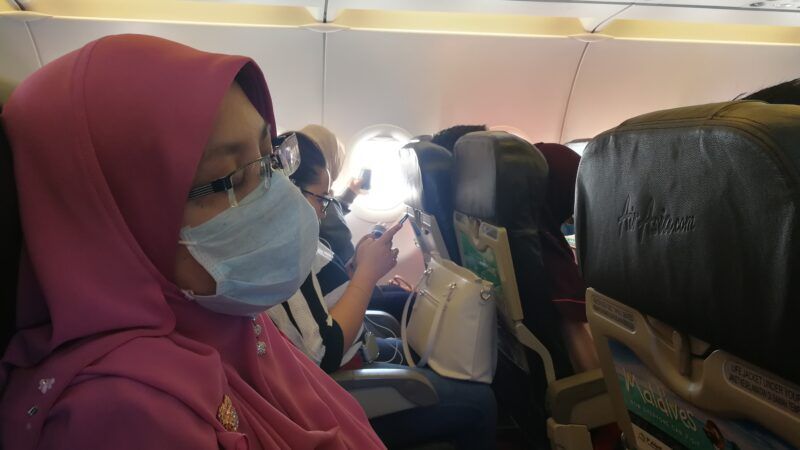Florida Judge Declares CDC's Federal Travel Mask Mandate 'Unlawful' and Vacates It
"Our system does not permit agencies to act unlawfully even in pursuit of desirable ends," writes Judge Kathryn Kimball Mizelle.

A Florida judge has vacated the Centers for Disease Control and Prevention's (CDC) mask mandate for transportation, calling it an "unlawful" expansion of federal authority.
"Our system does not permit agencies to act unlawfully even in pursuit of desirable ends," wrote U.S. District Judge Kathryn Kimball Mizelle, who was appointed during the Trump administration.
Mizelle's ruling brings an immediate halt to the mandate, though the government could ask the court to stay the judgment while an appeal is made. Under that scenario, the travel mandate—which applies to airplanes, trains, buses, and subway systems—could return.
In either case, it's not clear how much longer the CDC planned to keep the mandate. It was initially set to expire today, but the agency extended it for two additional weeks. Given that the air quality on airplanes is highly filtered, the CEOs of major airlines have testified that the mask requirement is unnecessary for their industry.
"It makes no sense that people are still required to wear masks on airplanes, yet are allowed to congregate in crowded restaurants, schools and at sporting events without masks, despite none of these venues having the protective air filtration system that aircraft do," wrote the CEOs of all major airlines in a letter to the Biden administration.
They certainly have a point. It's difficult to imagine that unmasked travelers and commuters are at significantly greater risk of catching COVID-19 than unmasked restaurant and gym customers: There's much less talking and heavy breathing on an airplane than there is at a bar—but the latter has practically no masking requirements at this point in the pandemic. In most respects, people are now free to decide for themselves what their personal risk tolerance is with respect to COVID-19 and behave accordingly.
In her decision, Judge Mizelle chided the CDC for taking shortcuts and exceeding its own statutory authority. Under the law—specifically, a federal law known as the Administrative Procedures Act—the agency is required to submit new policies for outside review and comment. The CDC declined to do this, arguing that any delay in implementing the mandate would cost lives. The agency also maintained that the mandate was not a new rule but, rather, a clarification of previous guidance relating to "sanitation."
Mizelle was unpersuaded, however, that the Public Health Service Act of 1944—the law the CDC cited as giving the agency the power to take such actions—considered disease prevention to be a form of sanitation.
"Wearing a mask cleans nothing," wrote Mizelle. "At most, it traps virus droplets. But it neither 'sanitizes' the person wearing the mask nor 'sanitizes' the conveyance. Because the CDC required mask wearing as a measure to keep something clean—explaining that it limits the spread of COVID-19 through prevention, but never contending that it actively destroys or removes it—the Mask Mandate falls outside of [applicable law]."
The mask mandate is "best understood not as sanitation, but as an exercise of the CDC's power to conditionally release individuals to travel despite concerns that they may spread a communicable disease (and to detain or partially quarantine those who refuse)," wrote Mizelle. But she is not convinced that Congress has actually delegated this power to the CDC in the case of individuals traveling within the U.S.
"The power to conditionally release and detain is ordinarily limited to individuals entering the United States from a foreign country," she wrote.
The lawsuit was brought by two Florida residents who argued that being required to wear masks on airplanes aggravated their anxiety—a condition that is not exempted from forced masking under the mandate. They are represented by the Health Freedom Defense Fund, a conservative legal group.


Show Comments (113)